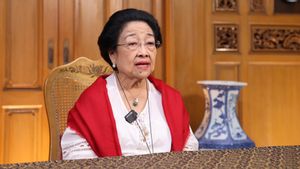YOGYAKARTA Diplomatic and consular representatives are two things that are sometimes considered the same. Despite having some in common, the public should know that there are differences in diplomatic and consular representations in several aspects.
The following article will increase your knowledge of diplomatic and consular representatives, especially in Indonesia.
In the Big Indonesian Dictionary (KBBI), diplomatic is defined as matters relating to official relations between countries and countries. Meanwhile, the consular is defined as relating to the consul or consulate.
The assumption that there is an inequality between diplomatic and consular representatives is indisputable. There are several aspects that make these two things similar, namely as follows.
Both diplomatic and consular representatives, in duty, both represent a country while in another country, especially when carrying out certain missions.
Because it is considered a representative of the state, diplomatic and consular representatives are essentially tasked with maintaining relations between countries, namely countries that are represented by countries visited or whose assignments are the destinations.
A diplomatic and consular representative is equally protected by international law. Each country must obey international law which includes various aspects, including the safety of diplomatic and consular representatives while serving outside the country of origin.
Diplomatic and consular representatives are working together with an assignment letter issued by state officials.
In addition to equality, the public must also know what the differences between diplomatic and consular representatives are, namely as follows, quoted from various sources.
Quoted from the official website of the Central Java Provincial Government, diplomatic representatives are state institutions located abroad assigned to foster state political relations they represent with other countries.
Meanwhile, consular representatives are state institutions that are abroad assigned to foster non-political relations with other countries.
Referring to his understanding, the nature of the assignment between diplomatic and consular representatives is different. Diplomatic representatives have the right to cooperate with a country that is political in nature. While the consular is the opposite, consular is allowed to have non-political relations.
Diplomatic representatives are required to maintain the interests of the state which is represented and in direct contact with central-level officials. Meanwhile, the consular carries out state duties with regional-level officials.
Each country can only have one person who has served as a diplomatic representative in each recipient country. In contrast to the consular, one country is allowed to have more than one person who has served as a consular duty.
The extrateritarian rights owned by diplomatic and consular representatives are also different. Diplomatic representatives have extraterritorial rights, namely freedom in the derah of their representatives. Meanwhile, the consular does not have these rights.
The signing of the diplomatic and consular representative assignment letter turned out to be different. The diplomatic representative letter was signed by the President (head of State) directly. Meanwhile, the consular assignment letter was signed by the official Minister of Foreign Affairs or the equivalent.
Those are the similarities and differences in diplomatic and consular representations. Visit VOI.ID to get other interesting information.
The English, Chinese, Japanese, Arabic, and French versions are automatically generated by the AI. So there may still be inaccuracies in translating, please always see Indonesian as our main language. (system supported by DigitalSiber.id)













